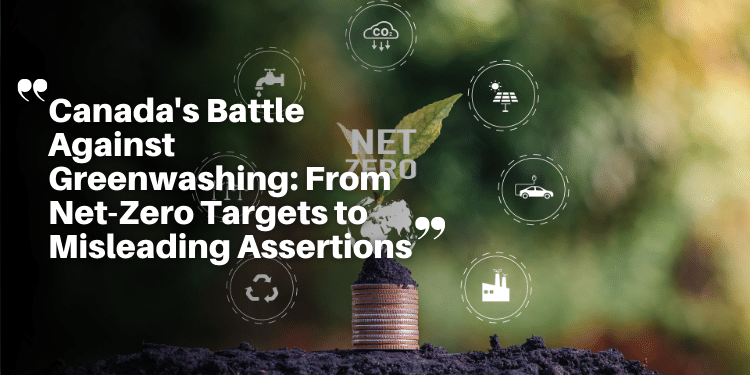Canada’s Battle Against Greenwashing: From Net-Zero Targets to Misleading Assertions

Greenwashing, often dismissed as a laundry term, is a prevalent concern in environmental discourse.
This deceptive practice involves companies exaggerating or misrepresenting their eco-friendly efforts, leading to consumer distrust. Canada, recognizing this issue, has implemented measures through the Competition Bureau to safeguard consumers. However, critiques highlight gaps in enforcement and regulation.
To address this, a comprehensive analysis of Canada’s approach compared to the EU’s stringent policies is necessary. Proposals for improvement include establishing a dedicated department within the Competition Bureau, enforcing transparency in corporate eco-promises, and adopting stricter anti-greenwashing rules.
These reforms aim to enhance consumer trust and encourage genuine sustainability efforts.
Critique of Canada’s Regulatory Approach
Canada’s regulatory approach to greenwashing is scrutinized in comparison to the EU’s robust policies. While the Competition Bureau oversees enforcement, the lack of specific legislation like the EU’s Green Claims Code raises concerns about effectiveness. Critics argue that vague guidelines and infrequent penalties allow greenwashing to persist. This undermines consumer trust and stifles genuine eco-initiatives.
Comparison of Canada’s Efforts with Those of the EU
Unlike the EU’s comprehensive directives, Canada primarily relies on the Competition Act, leading to less rigorous enforcement. The EU’s detailed legislation provides clarity and specificity, setting a higher standard for environmental claims. Canada can benefit from adopting similar stringent measures to combat greenwashing effectively.
Analysis of the Criticisms Levied Against Canada’s Regulatory Framework
Critics argue that Canada’s regulatory framework lacks adequacy and consistency, enabling greenwashing to go unchecked. Vague guidelines and infrequent penalties create ambiguity, allowing companies to make misleading claims without repercussions. This undermines consumer trust and stifles genuine sustainability efforts.
Examination of the Consequences of Weak Regulations
Weak regulations exacerbate consumer skepticism and hinder business communication of genuine eco-initiatives. Ambiguity surrounding acceptable sustainability claims leads to over- or under-statement of efforts, damaging consumer trust and market integrity. Businesses fear accusations of greenwashing, leading to reluctance in promoting eco-friendly practices.
Proposals for Strengthening Regulations
To address greenwashing, Canada should establish a dedicated department within the Competition Bureau to focus on environmental marketing claims. Enforcing transparency in corporate eco-promises and adopting stricter anti-greenwashing rules, modeled after the EU’s framework, can enhance market integrity and consumer trust.
Impact on Consumer Trust and Business Communication
Regulatory gaps contribute to consumer distrust and hinder genuine business communication of sustainability efforts. Lack of clarity and fear of greenwashing accusations lead to reluctance in promoting eco-initiatives, stifling progress and innovation.
Urgency for Enhanced Regulations and Transparency
Greenwashing undermines consumer trust and stifles genuine sustainability efforts. Strengthening regulations is crucial to combat this issue. By adopting stringent measures and promoting transparency, Canada can foster an environment where eco-friendly claims hold true weight, paving the way for a sustainable future.







